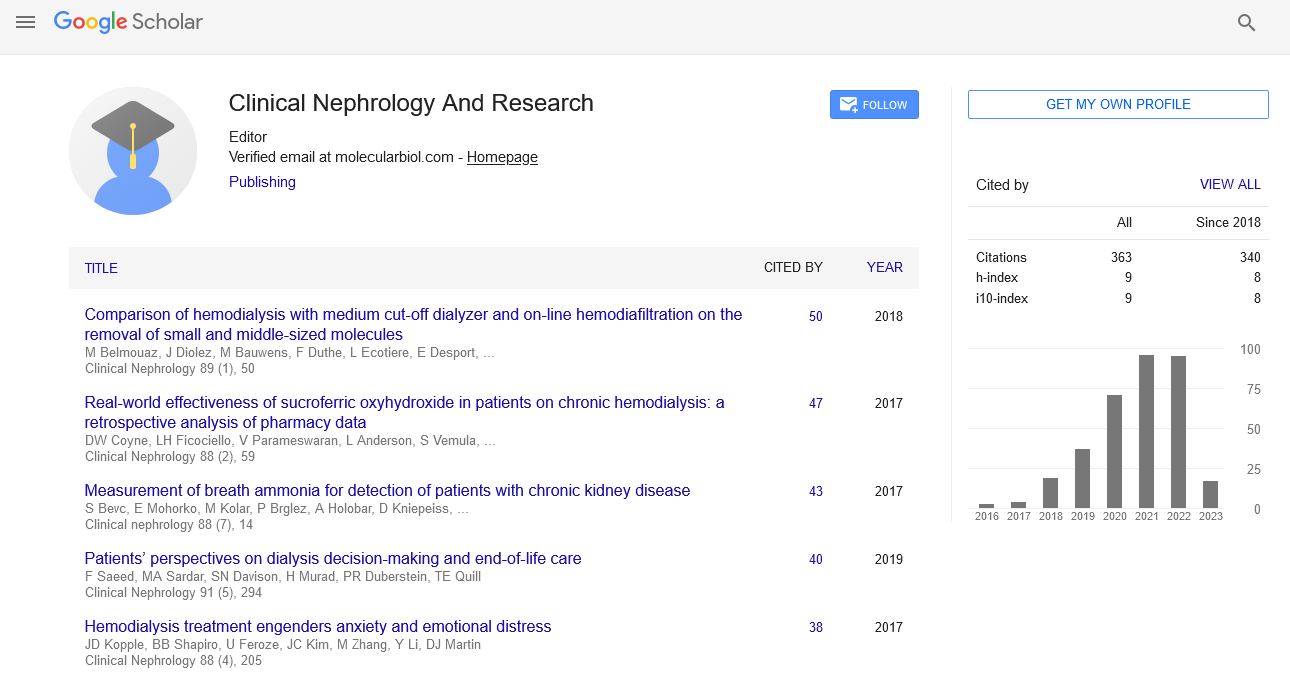
Sign up for email alert when new content gets added: Sign up
Abstract
Renal Biology-Driven Macro- And Microscale Design Strategies For Fiber-Based Technologies To Create An Artificial Proximal Tubule
Author(s): Stacy Miller*One in every six people in the world suffers from chronic renal disease. A cell-based bioartificial kidney (BAK) device is required due to the paucity of donor kidneys and the problems associated with hemodialysis (HD). One of HD's flaws is that it lacks active solute transport, which is generally carried out by membrane transporters in kidney epithelial cells. Proximal tubule epithelial cells, in particular, play a key role in the active transfer of metabolic waste products. As a result, a BAK with an artificial PT capable of actively transporting solutes between the blood and the filtrate could offer significant therapeutic benefits. A biocompatible tubular framework that supports the adhesion and function of PT-specific epithelial cells is required to create such an artificial PT. This scaffold should, in theory, structurally mimic the natural PT basement membrane, which is primarily made up of collagen fibres. Fiber-based technologies, like as electrospinning, are thus particularly promising for the production of PT scaffolds. The utilisation of electrospinning technologies to create an artificial PT scaffold for ex vivo/in vivo cellularization is discussed in this paper. We compare the various electrospinning technologies currently available and specify the desired scaffold qualities for use as a PT scaffold. Potential technologies that may converge in the future, allowing for the effective and biomimetic incorporation of synthetic PTs in BAK devices and beyond, are also discussed.
Full-Text | PDF




